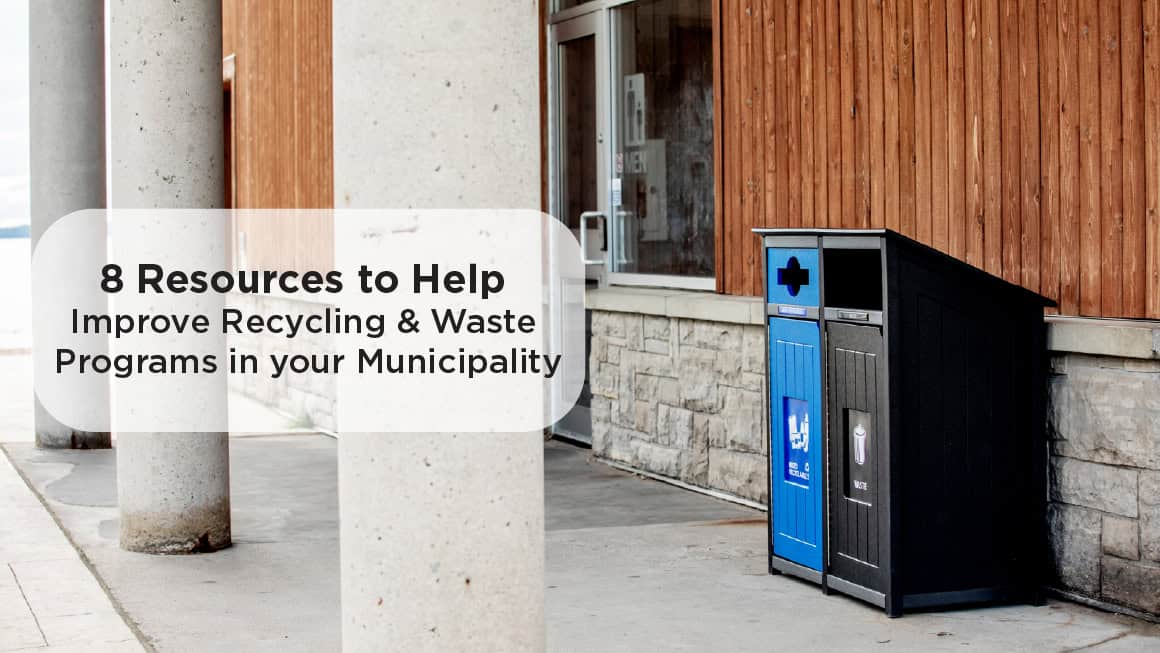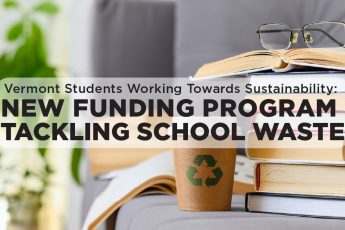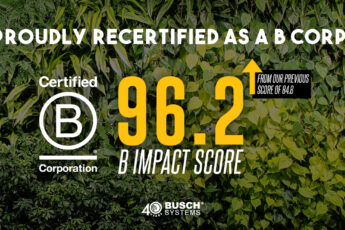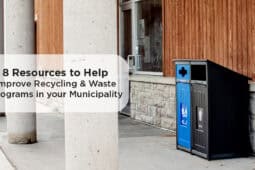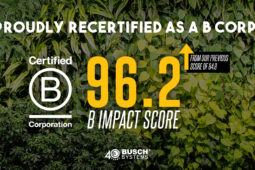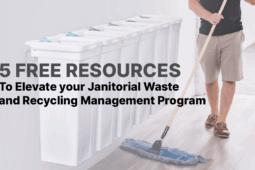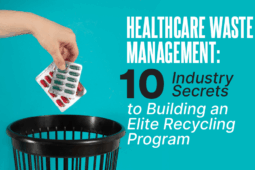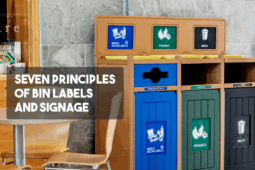Implementing an effective community-wide recycling and waste disposal program is no small feat. It requires careful planning, coordination, and education to encourage proper waste management practices across an entire municipality. To help you navigate these challenges, we’ve curated a list of the top eight resources that will guide you in creating an award-winning waste and recycling program.
You’ve likely heard familiar advice: standardize your program, increase recycling stations, reduce contamination. While these strategies are essential, each comes with its own set of complexities that make implementation challenging. That’s where you come in—equipped with the right tools and knowledge, you can lead your municipality toward more efficient and impactful waste management.
At Busch Systems, we’ve compiled a list of eight must-read resources that provide expert guidance on running a high-performing recycling and waste management program. Best of all, they’re free! While some resources may require sharing your email to access, the wealth of information you’ll receive is well worth the effort.
Why These Resources Matter
With recycling and waste disposal becoming increasingly crucial in tackling environmental challenges, municipalities must adopt strategies that go beyond the basics. These resources will empower you to implement best practices, from streamlining your waste management systems to educating the public, reducing contamination, and improving overall diversion rates.
1. US EPA Municipal Toolkit on Improving your Recycling Program
This toolkit is an invaluable resource that can help you take your recycling program to the next level. 8 recommendations are broken down and explained in detail including tips on how to tackle communication tactics, collection techniques, and recycling legislation.
2. The Essential Guide to Modernizing your Waste Program
This guide outlines 15 ways to “Amp up” your recycling and waste program using modern marketing strategies and data from your current program. It expands on extremely important communication tactics that will help you get your community on board with recycling.
3. Successful Recycling Programs, Best Practices, And Diversion Potential
This report analyzes Michigan’s 2016 processes and findings after implementing new recycling initiatives. 12 different tactics were outlined in the report including education programs, curbside recycling methods, funding, capacity, and policy supporting. Many of the challenges and successes within this report have the potential to help municipalities all over America expand on their current recycling programs!
4. Recycling Envy: 10 American Cities with Excellent Practices
When trying to improve your own program, it’s never a bad idea to borrow strategies that other cities or municipalities have already implemented effectively. In fact, it can help minimize the risk of trying something new since these ideas have already been proven successful in another region. This article gives a brief outline for some of the initiatives that other American cities have had success with, which could help inspire you to implement similar practices into your new program!
5. Waste 360’s “Nothing wasted!” Podcast on Municipal Recycling Issues
If you’re getting tired of reading and looking for a hands-free way to learn, this podcast episode explores some of the issues that other Municipalities are facing when it comes to recycling. The roundtable discussion includes Mark Bowers, solid waste programs division manager for the city of Sunnyvale, Calif., Department of Public Works; Michael McCoy, executive director of the Iowa Metro Waste Authority; and Waneta Trabert, director of the Sustainable Materials Management Division for the city of Newton, Mass., Department of Public Works.
6. Economic Tools to Reduce Household Waste a Related Greenhouse Gas Emissions
One of the major motivations behind recycling is to reduce greenhouse gas emissions to lessen the environmental impact of landfills. Understanding this topic is important when considering ways to improve your municipality’s recycling program as it outlines some of the major environmental consequences of choosing not to recycle. This information can be a major asset when it comes to communicating your program to residents, as it directly outlines the environmental benefits of recycling. It also provides valuable economic tools and suggestions on how to successfully lower your community’s GHG emission contribution.
7. Additional Efforts Could Increase Municipal Recycling
The United States Government Accountability Offices produced a report on effective efforts made by municipalities to increase their recycling within their cities. The report found that the three most effective practices were making recycling convenient and easy for their residents, offering financial incentives for recycling, and conducting public education and outreach. The report explains the benefits of these three methods along with other practices in hopes to encourage other municipalities to adopt the same policies within their recycling programs.
8. Ontario Baseline Waste & Recycling Report 2023
The Association of Municipalities of Ontario (AMO) provides a detailed analysis of Ontario’s non-hazardous solid waste management. It covers waste generation, performance metrics, provincial targets, and progress towards these goals. The report also discusses producer responsibility regulations for various waste types and addresses issues like litter. Its aim is to offer insights into current practices and future improvements to enhance waste diversion and meet environmental objectives. This is a great resource to learn from to see what strategies are working and what challenges may arise in municipal waste management.
And there you have it! Plenty of resources to get your journey to sustainable waste management started. We’ll continue to update this page as we see more great information come down the pipe. And again, if you think we’ve missed some more resources, feel free to comment below.
